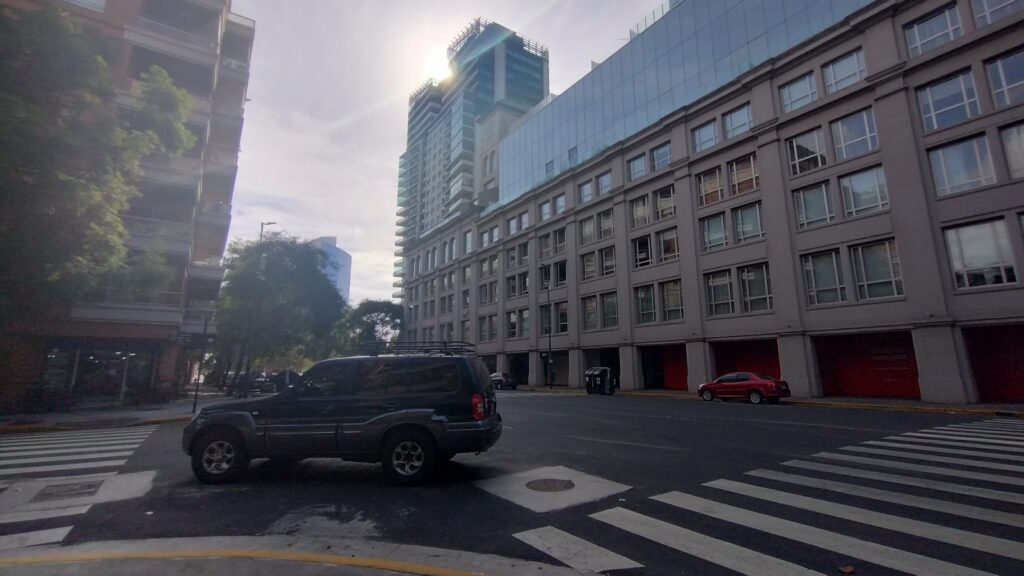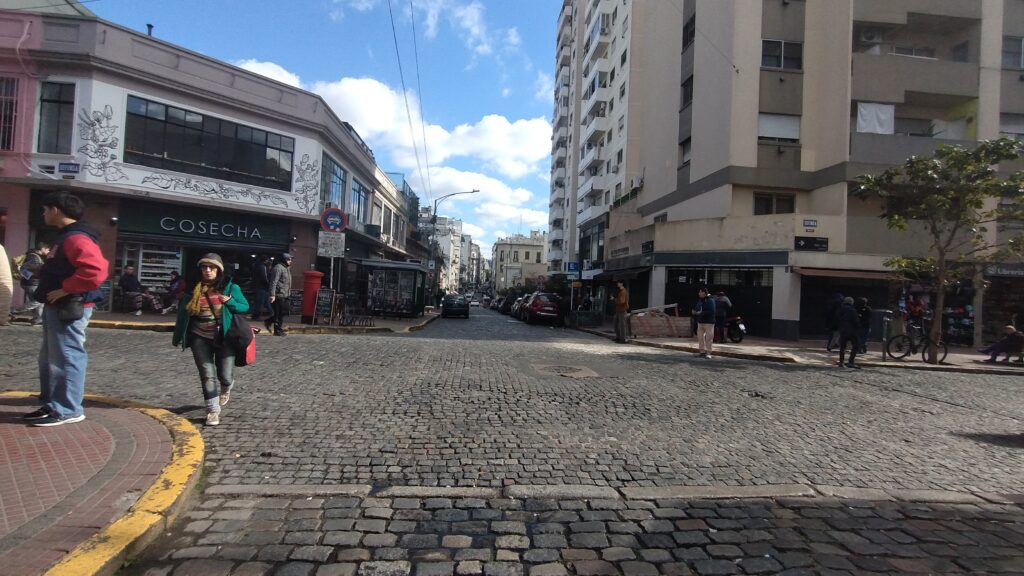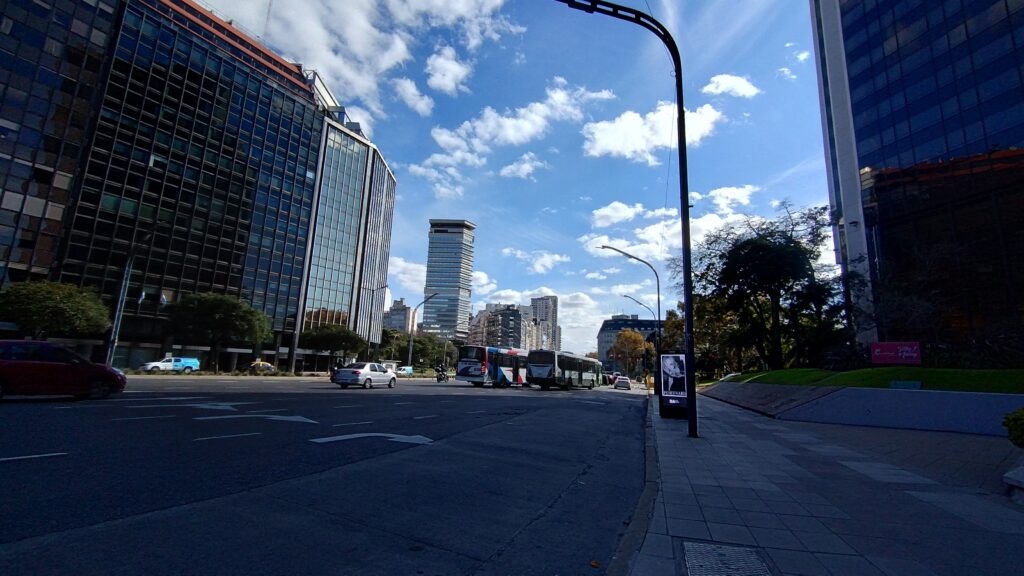In Buenos Aires you will not face the dilemma of scarcity when it comes to finding accommodation. Hotels, hostels and apartments are available in different areas of the city so you can find the most convenient option in terms of price, mobility and comfort.
Now, what is the most convenient option? In addition to what each type of accommodation can offer you, it will depend on what your requirements are. Here we share advantages and disadvantages of choosing between a hotel, a hostel or an apartment in Buenos Aires.
The good news is that all of these options are available in Buenos Aires. It only remains for you to choose the most convenient one.
Living in Buenos Aires: Hotel, Hostels or Apartments?
Hotels
Are there hotels in Buenos Aires? The easiest question to answer: Absolutely! Being one of the most important capitals in the world and Latin America, the hotel offerings are up to par.
In Buenos Aires, you can find hotels in virtually every neighborhood of the city, including the province of Buenos Aires. However, as expected, most hotel options are concentrated in the areas most frequented by both foreigners (digital nomads, expats, travelers) and Argentines: San Telmo, Microcentro, Monserrat, San Nicolás, Retiro, Recoleta, Balvanera, Palermo, and Puerto Madero.
The range of hotels is as wide as it is competitive. This means that while you will find hotels at all price points, this won’t be an exclusive criterion for enjoying a comfortable stay. In every major city, you’ll find several hotels sharing the same block.
Here are the most appropriate criteria to help you find your ideal hotel in Buenos Aires:
- Stars: In Buenos Aires, you have hotels ranging from 1 to 5 stars. While a 5-star hotel is a “city” in itself, 4, 3, and even 2-star hotels offer good accommodation conditions. It all depends on your preferences. If your trip’s purpose is to explore Buenos Aires as much as possible, you don’t need to spend a lot on a luxury hotel.
- Location: Important when planning not only your arrival and departure from Buenos Aires but also your tours and excursions.
- Security: It will depend a lot on the neighborhood you choose for your stay. Relative to other cities, Buenos Aires is one of the safest in Latin America. Hence, staying in central areas like Palermo or Microcentro will be safer than neighborhoods like Constitución or San Telmo (the latter is picturesque but somewhat unsafe at night).
- Amenities: Will you need a hotel just to spend the night? Or do you want accommodation where you can enjoy a meal, a pool, and other services? This will be a key criterion when choosing a hotel.
| Advantages | Disadvantages |
|---|---|
| All amenities at your disposal | Can be a significant part of your budget |
| Security and central locations | Might not offer an authentic local experience |
| Variety of star ratings to choose from | Limited to traditional tourist areas |
| Ideal for short stays | May lack kitchen facilities |
In general, hotels are ideal for stays of a few weeks. The main advantage is that you have everything at your disposal to only focus on your tourist activities and get to know the city as much as possible. On the downside, a hotel stay can be a significant part of your budget and, importantly, it doesn’t offer the full experience of living like a local.

Hostels
A great way to visit Buenos Aires and connect with both Argentines and travelers from other parts of the world is by staying in hostels.
Although the hostel offerings are not as vast as that of hotels, you have several affordable lodging options. These types of accommodations are concentrated in areas like Palermo, San Telmo, and the city center (San Nicolás, Monserrat, and Congreso). In less central neighborhoods, you can also find hostels, either with shared rooms or private ones.
What types of hostels can you find in Buenos Aires? From typical hostels operating in houses with several rooms and managed by their owners to more “modern” versions with amenities, pools, and even activities that promote bonding among travelers.
Consider the following criteria when choosing a hostel:
- Reviews from other travelers: There is a strong traveler community that can share their hostel experiences.
- Room type: Do you value privacy? Some hostels offer both private and shared rooms, while others offer only one or the other. If you’re a woman, note that some hostels offer female-only shared rooms.
- Location: When choosing a hostel in Buenos Aires, one of the main purposes is to save money and concentrate your resources on exploring the city. Hence, the location will be very important, especially if you need a coworking space nearby and plan to return to your lodging late at night.
- Type of interaction you seek: Not all hostels should be idealized as open, multicultural communities. Some do not encourage or require guests to share this type of bond. But there’s no doubt this aspect is key when choosing a hostel.
| Advantages | Disadvantages |
|---|---|
| Affordable and social | May lack certain amenities |
| Great for meeting new people | Shared spaces can be a drawback |
| Located in popular areas | Privacy might be limited |
| Ideal for short stays | Noise and cleanliness could be issues |
The main advantage of hostels in Buenos Aires is that they offer the opportunity to meet new people: friends, travel companions, and other cultures. Who knows, you might find someone special there. It’s also the best option for travelers who don’t seek luxury during their stay in Buenos Aires. The downside is that not all comforts are guaranteed, plus you might need to share spaces with others, and the chemistry may not always be the best.

Apartments
The real estate development in Buenos Aires is not hindered by the crisis. Skyscrapers and modern buildings are dominating the landscape, not only in traditionally tourist neighborhoods but also in residential neighborhoods that are becoming more attractive to tourists and foreign travelers.
In Buenos Aires, the economic crisis and the stagnation of the real estate market (due to various factors like the economic situation, overpopulation, and inadequate legislation) have led property owners and real estate agencies to welcome the idea of temporary apartment rentals.
With Airbnb leading this phenomenon, Buenos Aires is one of the cities where temporary apartment rentals by foreigners have gained significant market share. Some real estate projects are initially intended exclusively for foreign rentals.
The devaluation of the local currency and the fact that the dollar is the most desired currency for Argentines as a reserve of value and capital has made apartment owners view rentals to foreigners favorably.
Unlike hostels and hotels, which are concentrated in tourist areas of the city, the phenomenon of apartments for rent is spread throughout Buenos Aires. Therefore, some criteria to consider when renting an apartment are:
- Location: Since you don’t have as many limitations as with hotels and hostels, apartments for temporary rental are available in different areas of the city, from residential neighborhoods to tourist areas. It all depends on your requirements and the purpose of your trip (exploring Buenos Aires, work, etc.).
- Spaces: Studios, 1-bedroom, 2-bedroom, and even larger apartments. You can find apartments of all sizes and dimensions.
- Rental conditions: Each owner has their requirements for renting their apartment. These requirements include the currency for the transaction, security deposit, insurance, pet acceptance, maximum number of occupants, etc. Ensure that the operation is transparent.
- Type of apartment: Modern buildings with amenities can be expensive for your budget. Therefore, you can also find slightly older buildings without amenities or parking or properties of up to 2 floors that extend horizontally and deeply, also known as PH.
- Neighborhood security: Since you can choose apartments in any part of the city, consider the safety of each area. For example, avoid accommodations near railway tracks, emergency zones, and the outskirts of Buenos Aires. Traditionally, the South and West zones of Buenos Aires are a bit less safe than the North, Center, and East.
| Advantages | Disadvantages |
|---|---|
| Autonomy and privacy | Requires more self-sufficiency |
| Feels like home | Clear rental agreements needed |
| Variety of locations | Potential for misunderstandings or scams |
| Best for long stays | May lack social interaction |
The main advantage of renting an apartment is the autonomy and privacy it offers. You’ll enjoy the tranquility of your own space and won’t have to socialize if you don’t want to. It’s the best option for long stays (1 month or more). The disadvantage is that you’ll need to be more self-sufficient in organizing your stay and must be very clear with the rental conditions to avoid misunderstandings and scams.

Last Considerations
Have you discovered that Buenos Aires might be your place in the world? Whether you’re planning to live, work, or explore the city, choosing the right accommodation is crucial.
From luxurious hotels to social hostels and independent apartments, Buenos Aires has options for every traveler, digital nomad, or expat. It’s essential to consider your budget and the specific amenities you need for a comfortable stay.
At ExpatPathways, we’re here to guide you through your options, ensuring that your experience in Buenos Aires is as seamless and enjoyable as possible. Find your perfect home base and start your Buenos Aires adventure today!
(Featured Image Source: Pablo Urrea/flickr.com)


